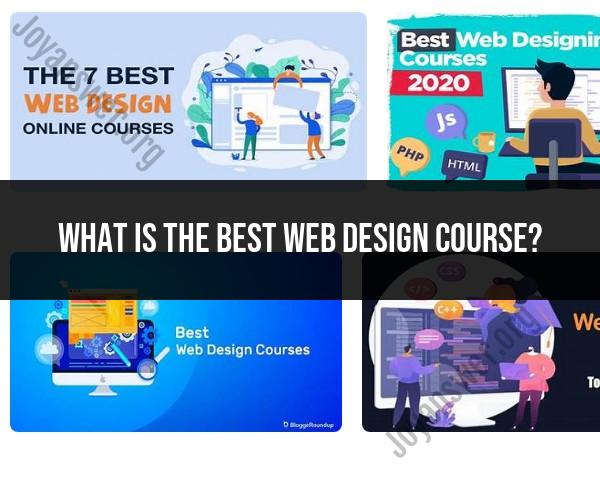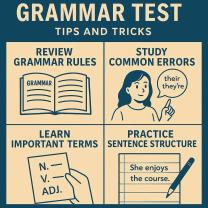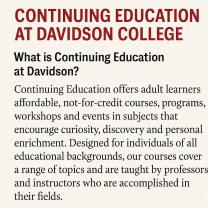What is the best web design course?
Determining the "best" web design course depends on your specific learning preferences, prior knowledge, and goals. Here are some criteria to consider when identifying the best web design course for you:
Content and Curriculum:
- A good web design course should cover a comprehensive curriculum that includes HTML, CSS, JavaScript, responsive design, user experience (UX), and potentially other relevant technologies like jQuery, Bootstrap, and more.
Project-Based Learning:
- Courses that offer hands-on, project-based learning allow you to apply theoretical knowledge to real-world scenarios. Building actual websites or web applications is a great way to reinforce your skills.
Instructor Expertise:
- Look for courses taught by experienced instructors with a background in web design and development. Check the instructor's credentials, experience, and reviews from previous students.
Platform Reputation:
- Choose courses from reputable online learning platforms or institutions. Platforms like Coursera, Udacity, edX, LinkedIn Learning, and others often host high-quality web design courses.
User Reviews and Ratings:
- Read reviews and ratings from other learners who have taken the course. This can provide insights into the course's strengths, weaknesses, and overall effectiveness.
Flexibility:
- Consider your preferred learning style and the course format. Some people prefer self-paced courses, while others benefit from more structured, instructor-led formats. Choose a course that aligns with your preferences.
Updates and Relevance:
- Web design is a rapidly evolving field. Ensure that the course content is up-to-date and relevant to current industry standards. Look for courses that cover modern design trends and responsive design principles.
Community and Support:
- Courses that provide access to a supportive community, discussion forums, or Q&A sessions can enhance your learning experience. Being able to connect with instructors and fellow learners can be valuable.
Certification:
- Consider whether the course offers a certification upon completion. While not always necessary, having a recognized certificate can be beneficial for your resume or portfolio.
Cost and Value:
- Evaluate the course cost in relation to the value it provides. Some platforms offer free courses or trial periods, while others may require payment. Consider the overall value you'll gain from the course.
Additional Resources:
- Look for courses that provide additional resources such as downloadable materials, code samples, or access to relevant tools and software.
Here are a few recommendations for web design courses based on popular online learning platforms:
"Web Design for Everybody (Basics of Web Development and Coding)" on Coursera:
- Offered by the University of Michigan, this specialization covers the basics of web development, HTML, CSS, and JavaScript.
"Responsive Web Design" on freeCodeCamp:
- freeCodeCamp offers a comprehensive, free curriculum on responsive web design, covering HTML, CSS, Bootstrap, and more.
"The Web Developer Bootcamp 2023" on Udemy:
- Instructed by Colt Steele, this Udemy course is well-regarded for beginners and covers HTML, CSS, JavaScript, and more.
"HTML, CSS, and JavaScript for Web Developers" on Coursera:
- Provided by Johns Hopkins University on Coursera, this course is part of the "Full-Stack Web Development" specialization.
Remember that the "best" course depends on your specific needs and preferences. Consider exploring multiple resources to find the one that aligns best with your learning style and goals.
Factors Defining the Best Web Design Courses:
Several critical factors distinguish a web design course as the best, ensuring its effectiveness and relevance in the ever-evolving digital landscape:
1. Curriculum and Content:
- Comprehensiveness: Covers foundational web design principles, including HTML, CSS, JavaScript, and front-end frameworks like React or Vue.js.
- Industry Relevance: Emphasizes modern design trends, best practices, and in-demand technologies like UX/UI design, accessibility, and responsive design.
- Depth and Progression: Provides progressively challenging content that builds upon existing knowledge and skills.
- Real-world Projects: Incorporates practical exercises and project-based learning to apply theoretical knowledge to real-world scenarios.
2. Instruction and Mentorship:
- Experienced instructors: Led by industry professionals with a proven track record and expertise in web design and development.
- Interactive learning: Features engaging lectures, discussions, workshops, and interactive exercises to facilitate understanding and skill development.
- Personalized feedback: Provides constructive feedback on projects and assignments to help students improve their work and identify areas for development.
- Mentorship opportunities: Offers access to mentors or advisors to guide students through the learning process and provide career advice.
3. Learning Resources and Support:
- High-quality learning materials: Provides comprehensive course materials, including video tutorials, interactive quizzes, code samples, and design resources.
- Community access: Offers access to a community of learners and instructors for collaboration, networking, and peer support.
- Technical support: Provides assistance with any technical issues or challenges students may encounter during the learning process.
- Job placement assistance: Offers career guidance and helps connect graduates with potential employers or freelance opportunities.
4. Industry-Relevant Skills and Technologies:
- Focus on current industry trends and tools: Emphasizes the use of modern frameworks, libraries, and technologies like WebAssembly, CSS Grid, and web animation APIs.
- Portfolio development: Encourages students to build a strong online portfolio showcasing their best work and skills to potential employers.
- Guest speaker sessions: Features industry experts and professionals sharing their insights and experiences in the field of web design.
- Partnerships with companies: Offers opportunities for internships or real-world projects with leading companies in the industry.
5. Career Outcomes:
- Graduates are prepared for in-demand careers: Equips students with the skills and knowledge needed to successfully pursue careers in web design, development, UX/UI design, or related fields.
- Networking opportunities: Provides avenues for students to connect with industry professionals and build valuable relationships.
- Job placement support: Assists graduates with their job search by offering resume and portfolio development workshops, interview preparation tips, and job posting connections.
- Strong alumni network: Offers access to a network of successful alumni who can provide career guidance and mentorship.
6. Value and Affordability:
- Reasonable pricing: Offers competitive tuition fees or flexible payment options to make the course accessible to a wider range of learners.
- Return on investment: Provides tangible value for the cost of the course by equipping students with skills they can use to secure well-paying jobs in the industry.
- Financial aid options: Offers scholarships, grants, or financial aid programs to assist students with covering the cost of the course.
By considering these factors, you can identify web design courses that stand out as the best, offering the most comprehensive and effective learning experience to prepare you for a successful career in the digital world.













